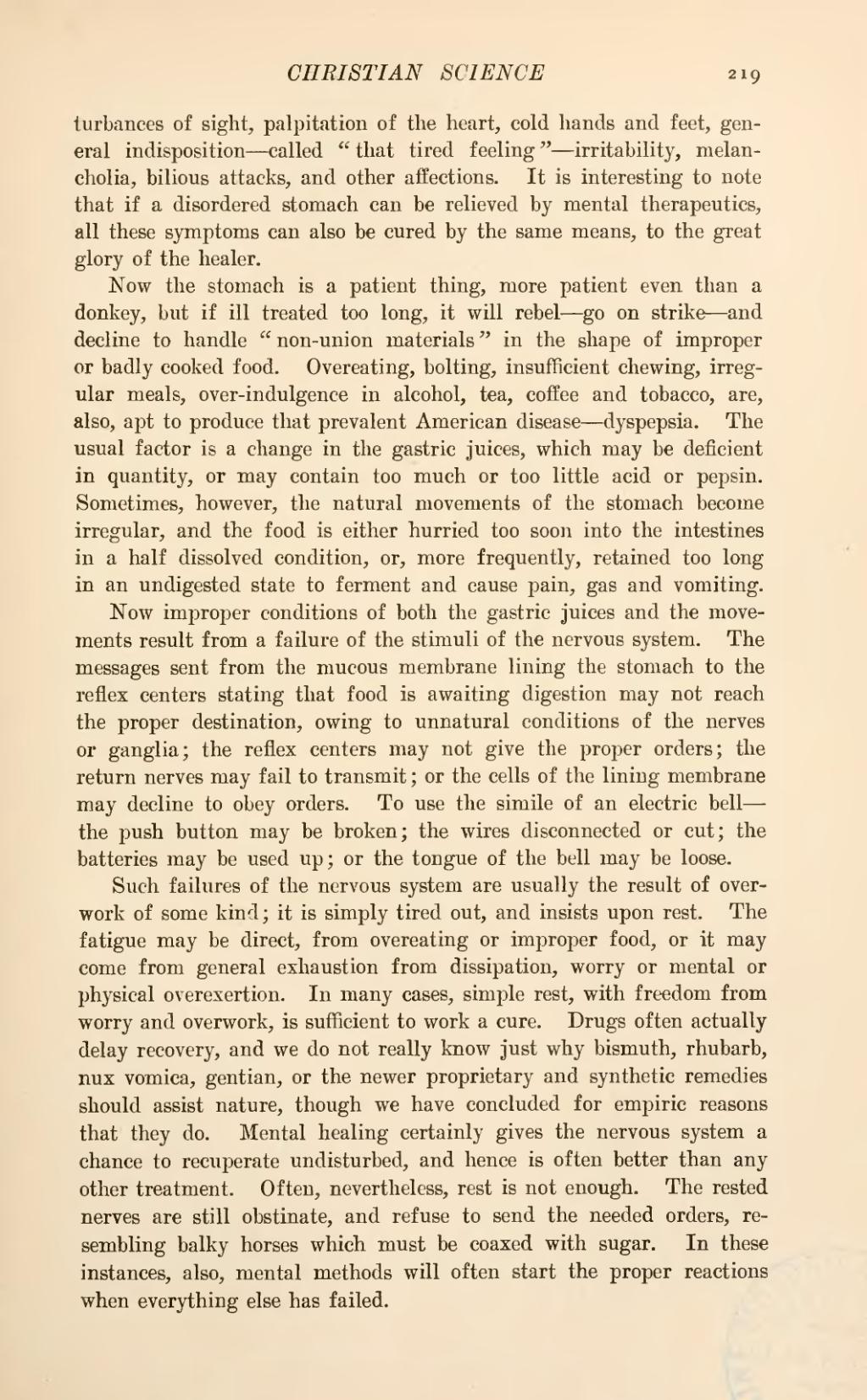turbances of sight, palpitation of the heart, cold hands and feet, general indisposition—called "that tired feeling"—irritability, melancholia, bilious attacks, and other affections. It is interesting to note that if a disordered stomach can be relieved by mental therapeutics, all these symptoms can also be cured by the same means, to the great glory of the healer.
Now the stomach is a patient thing, more patient even than a donkey, but if ill treated too long, it will rebel—go on strike—and decline to handle "non-union materials" in the shape of improper or badly cooked food. Overeating, bolting, insufficient chewing, irregular meals, over-indulgence in alcohol, tea, coffee and tobacco, are, also, apt to produce that prevalent American disease—dyspepsia. The usual factor is a change in the gastric juices, which may be deficient in quantity, or may contain too much or too little acid or pepsin. Sometimes, however, the natural movements of the stomach become irregular, and the food is either hurried too soon into the intestines in a half dissolved condition, or, more frequently, retained too long in an undigested state to ferment and cause pain, gas and vomiting.
Now improper conditions of both the gastric juices and the movements result from a failure of the stimuli of the nervous system. The messages sent from the mucous membrane lining the stomach to the reflex centers stating that food is awaiting digestion may not reach the proper destination, owing to unnatural conditions of the nerves or ganglia; the reflex centers may not give the proper orders; the return nerves may fail to transmit; or the cells of the lining membrane may decline to obey orders. To use the simile of an electric bell—the push button may be broken; the wires disconnected or cut; the batteries may be used up; or the tongue of the bell may be loose.
Such failures of the nervous system are usually the result of overwork of some kind; it is simply tired out, and insists upon rest. The fatigue may be direct, from overeating or improper food, or it may come from general exhaustion from dissipation, worry or mental or physical overexertion. In many cases, simple rest, with freedom from worry and overwork, is sufficient to work a cure. Drugs often actually delay recovery, and we do not really know just why bismuth, rhubarb, nux vomica, gentian, or the newer proprietary and synthetic remedies should assist nature, though we have concluded for empiric reasons that they do. Mental healing certainly gives the nervous system a chance to recuperate undisturbed, and hence is often better than any other treatment. Often, nevertheless, rest is not enough. The rested nerves are still obstinate, and refuse to send the needed orders, resembling balky horses which must be coaxed with sugar. In these instances, also, mental methods will often start the proper reactions when everything else has failed.
